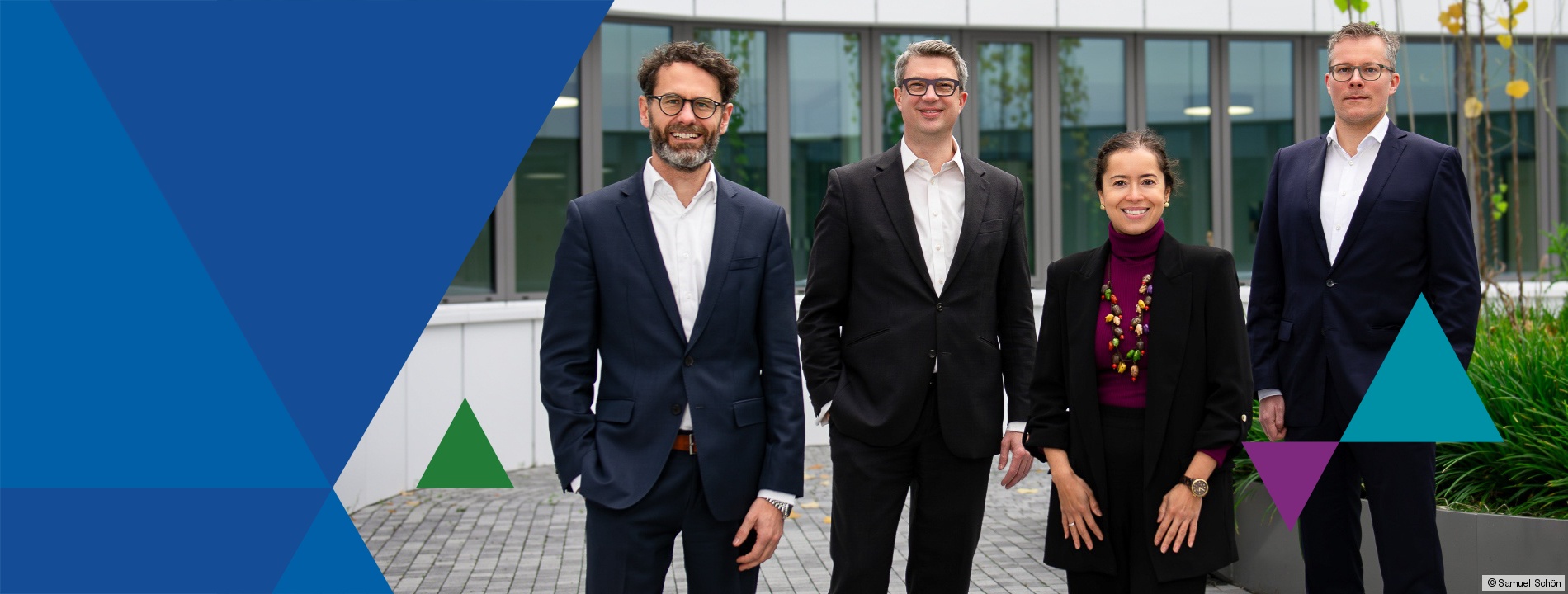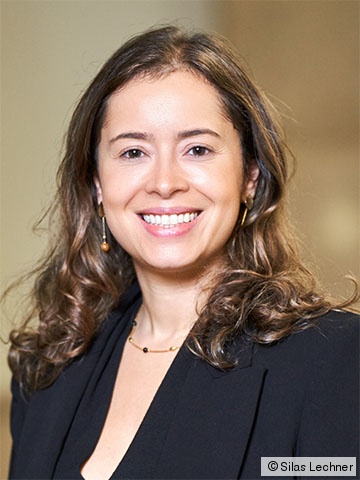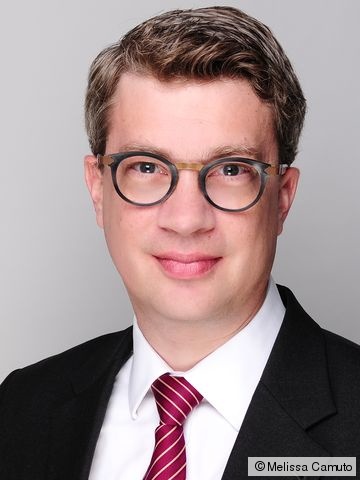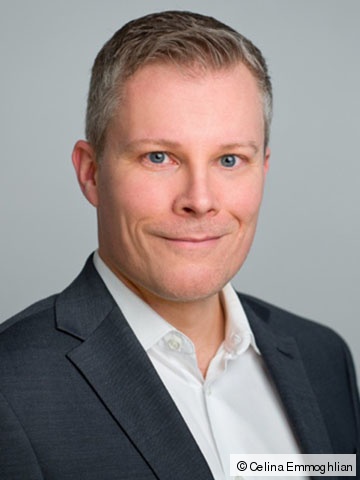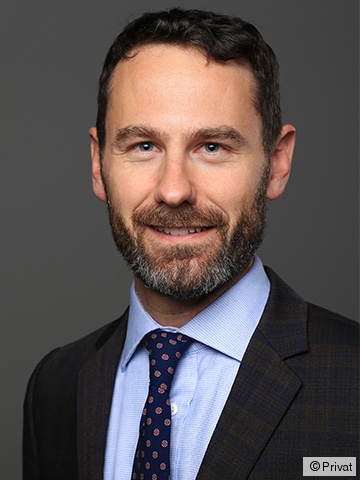Battling climate change requires a combination of public and private investments. Public funds play a crucial role in supporting large-scale initiatives and infrastructure projects, while private investments are vital for driving innovation, sustainable business practices, and green technology development.
The funding requirements to achieve agreed-upon climate goals in Germany for the next two decades alone amount to several hundred billion euros. This has led to the emergence of new financial instruments to finance these significant investments. Simultaneously, investors and the public face the challenge of assessing sustainability risks and activities. This necessitates suitable analyses and a critical approach to an exponentially growing and increasingly complex data universe.
In our role as an interdisciplinary research group, we focus on Sustainable Finance, addressing key questions such as designing financial instruments to promote the Green Transition, identifying required data and suitable collection methods, understanding investor preferences in Sustainable Finance markets, and considering effective regulatory measures.
Our activities are anchored through:
- A public research seminar on Sustainable Finance, fostering dialogue with external and internal researchers and practitioners.
- Interdisciplinary research projects in collaboration with industry partners.
- Cross-disciplinary teaching offerings and thesis projects.
Research Seminar
Dr. Henrik Pontzen is Chief Sustainablility Officer at Union Investment.
The presentation will be held in German and will take place at 5 p.m. in building 4, room 105. For better planning, we kindly ask for prior registration.
Dr. Laura-Chloé Kuntz is researcher at the banking supervision division of Deutsche Bundesbank. The presentation will be held in German and will take place at 5 p.m. in building 4, Room 109/110. For better planning, we kindly ask for prior registration (German only).
On Wednesday, 13 November 2024, Mr André Carl, Head of Asset Strategy and Valuation, and Mr Lukas Brunert, Head of Sustainability at Branicks Group AG, will speak about the influence of ESG criteria on the market value and marketability of real estate properties, the corresponding ESG certification, methodologies for the ESG valuation of buildings and the associated market developments. The lecture will be held in German in room 4/308. We kindly ask to register in advance.
On 29 January 2025, Ms Hong Linh Nguyen, MIT Visiting Fellow and Teamlead in the Investment Division at DWS, will conduct a workshop using the En-ROADS climate simulator. In the workshop, various assumptions will be defined in interaction with the audience and the resulting climate change scenarios will be analysed. This interactive experience creates a deeper understanding of the interrelationships and demonstrates the impact of individual measures. The En-ROADS climate simulator was developed by Climate Interactive and the MIT Sustainability Initiative.
The workshop will take place in building 10, lecture room 125. We kindly ask to register in advance.
On Wednesday, 24 April 2024, Dr. Stefan Paulus, Lecturer for Finance at Hochschule für Wirtschaft und Recht Berlin, will present his current working paper "The Impact of Corporate Social Responsibility on Firm Value – The Role of Shareholder Preferences" (joint work with Martin Rohleder). The paper focusses on increasing shareholder value by incorporating Corporate Social Responsibility.
The presentation will be held in German and will take place at 5 p.m. in building 10, room 125. For organizational matters we kindly ask for registration.
Nicolas Schweigert is Project Manager Ecological Footprint with Bayer AG. His talk will cover climate strategy and climate-related reporting of large cooperations with Bayer AG serving as example. The presentation will be held in German and take place at 5 p.m. in building 10, room 125. For organizational matters, we kindly ask for registration.
Understanding and addressing challenges in the transition toward a sustainable economy requires high-quality data. However, the existing gaps in the coverage, timeliness, accessibility, reliability, and integration of climate-related data present an obstacle for informed decision making. This talk explores the evolving landscape of climate-related data and discusses innovative approaches to bridge these gaps, leveraging alternative data sources and novel methods as potential solutions.
The presentation of Prof. Alves Werb, Ph.D., will take place on at 5 p.m. in building 10, room 125. For organizational matters we kindly ask for registration.
Professor Thier presents his current working paper (together with Professor Martin Hillebrand). This research studies the structure of investor demand for green and conventional bonds in order to understand why investors hold green instruments. The identified demand structure is capable of explaining a small green premium. The presentation will be given in English in room E08/09 in building 10.
Projects
Due to regulatory requirements and increasing market demand, the use of ESG (Environmental, Social, Governance) data is becoming increasingly important. Numerous ecological and social sustainability indicators are available to steer and shape financial products. But how do financial service providers integrate this data, and what objectives are pursued in the process? In collaboration with industry partners, we are conducting a scientific investigation on this matter. In contrast to other studies, we subject various market participants – banks, asset managers, insurance companies, other financial service providers, and institutional investors – to a comparative analysis. The goal is to identify the current state and challenges while exploring the influences of different regulatory frameworks.
Guided by the principle 'What gets measured gets managed,' our hypothesis posits that increased transparency among banks and asset management companies in the Frankfurt financial center regarding risks and opportunities in the Environmental complex leads to more effective management and strategic steering.
The Frankfurt Environmental Finance Transparency Index (FEFT Index), developed within this project:
- Serves as a standardized, reproducible measure of transparency in the Environmental complex of actors in the financial center, aligning with the CSRD.
- Its robustness is scientifically substantiated through backtests conducted for the years 2018-2022 and statistical tests.
- Documents the evolution of the financial center.
- Its annual calculation is facilitated by efficient Artificial Intelligence methods for information extraction.
This project is supported by Frankfurt Main Finance e. V..
Publications and Speeches
- Alves Werb, G. (2024): Künstliche Intelligenz trifft auf Nachhaltigkeit: Innovative Ansätze, um ESG-Kennzahlen herauszufiltern. Article in the Sustainability Report 2022/23 of the Frankfurt University of Applied Sciences, pp. 35.
- Alves Werb, G. (2024): Innovation for Improving Climate-Related Data. Vortrag auf der 2. Conference on Data Innovation for Future of Regulation - Financial Conduct Authority, UK, July 2024.
- Alves Werb, G., Felka, P., Reichenbach, L., Walter, S., und Yalcin-Roder, E. (2024): Geospatial Data and Multimodal Fact-Checking for Validating Company Data. 2024 IEEE International Conference on Big Data (BigData), Washington, DC, USA, 2024, pp. 3329-3332, https://doi.org/10.1109/BigData62323.2024.10825029
- Müller-Merbach, J. (2024). Sustainable Finance – The Corporate View. Fachvortrag, Haaga-Helia University of Applied Sciences, Helsinki, November 2024.
- Müller-Merbach, J. (2024): Sustainable Finance. Keynote speech at ceremony for awarding Golden Diplomas to graduates of the class of 1973. Frankfurt UAS, January 2024.
- Müller-Merbach, J., and Ryu, D. (2024): Does Corporate Social Responsibility Increase Firm Performance? The Case of Korea. Working Paper, https://papers.ssrn.com/sol3/papers.cfm?abstract_id=4868968.
- Müller-Merbach, J., Alves Werb, G., Simon, M., and Thier, C. (2024): Wer Nachhaltigkeit sagt, muss auch Finanzierung sagen – Gründung des Sustainable Finance Research Lab. Article in the
Sustainability Report 2022/23 of the Frankfurt University of Applied Sciences, pp. 70–71. - Simon, M., Thier, C. and Radermacher, A. (2024): Die Integration von ESG-Daten vor dem Hintergrund von CSRD, Zeitschrift für das gesamte Kreditwesen, 1 Feb 2024.
- Thier, C. (2024): Entwicklungen und Investorennachfrage im Green Bond Markt, Talk at Bundesrepublik Deutschland – Finanzagentur GmbH, January 2024.
- Alves Werb, G. (2023): Harnessing AI to Reshape the Sustainability Data Landscape. efl Annual Conference, Goethe University Frankfurt, November 2023.
- Alves Werb, G. (2023): Machine Learning and Artificial Intelligence for Sustainability. Presentation in the Climate Risks and Central Banks Seminar Series – Online, April 2023.
- Doll, H. C., and Alves Werb, G. (2023): Innovation for Improving Climate-Related Data-Lessons Learned from Setting Up a Data Hub. AStA Wirtschafts- und Sozialstatistisches Archiv, 17(3), 355-380. https://doi.org/10.1007/s11943-023-00326-w
- Doll, H. C., Fehr, M., Yalcin-Roder, E., and Alves Werb, G. (2023): Measuring the Emission Profile of Self-Proclaimed Sustainable Exchange-Traded Funds.IFC Bulletin (Vol. 58). Bank for International Settlements.
- Doll, H. C., Fehr, M., Yalcin-Roder, E., and Alves Werb, G. (2023): Measuring the Emission Profile of Self-Proclaimed Sustainable Exchange-Traded Funds. Presentation at the 64th ISI World Statistics Congress – Ottawa, Canada, July 2023.
- Hillebrand, M., and Thier, C. (2023): Who is the Green Investor? Demand for Green Bonds in Primary Markets, Working paper, https://papers.ssrn.com/sol3/papers.cfm?abstract_id=4405686
- Müller-Merbach, J., and Grabia, L. (2023): Blockchain – technology for a more inclusive financial system?, Workshop with the World University Service, Wiesbaden, 11 November 2023.
- Müller-Merbach, J., and Simon, M. (2023): Blockchain: Technology for a more sustainable financial system?, Presentation in the lecture series "Blockchain – Mehr als nur Bitcoin" at Frankfurt UAS, winter semester 2022/23, 18 Jan 2023.
Teaching
- Klimawandel – Risiko für die Menschheit, Studium Generale, Sommersemester 2023
- If you are interested in a thesis supervised across different departments, feel free to contact us!

